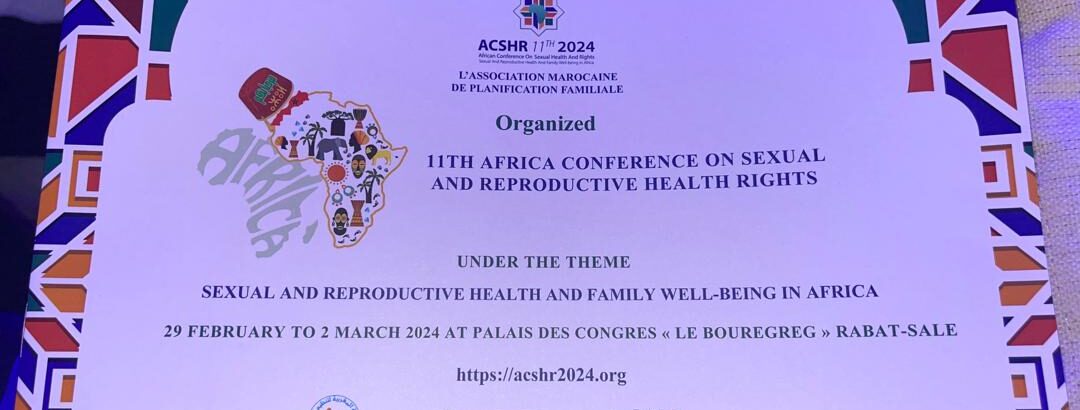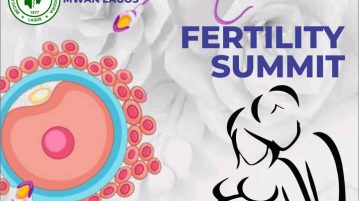Between 26th of February and 2nd of March 2024, the 11th edition of the African Conference on Sexual and Reproductive Health Rights and Family Well-being (ACSHR) was hosted in Morocco under the esteemed patronage of His Majesty King Mohammed VI.
Conceived in 2002, with the first edition held in Johannesburg, South Africa in 2004; the ACSHR has biennially brought together non-profit organizations, state agencies, global experts, policymakers, advocates and most importantly, young people and girls to discuss, share insights, and strategize solutions towards issues surrounding sexual and reproductive health (SRH) and rights across Africa and beyond.
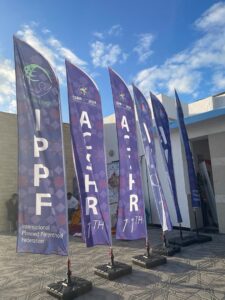
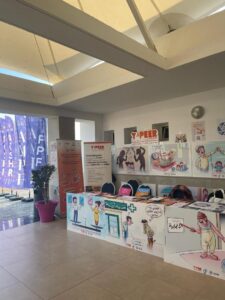
At the Youth preconference which held in Bouznika on the 26th of February and 27th of February, the founder and convener of the conference – Dr Uwemedimo Esiet – revealed that since inception in 2002, the hosting of the conference has moved round different countries in the Sahara, but this edition would be the first time it would be holding in North Africa. Hence, congratulating and commending the organising committee and leadership of Morocco for breaking the jinx and taking the lead to host this strategic meeting towards improving “sexual and reproductive health and rights (SRHR)” in North Africa, the Arab world and Africa at large.
He also applauded the fact that youths from different countries and populations across the continent and beyond were well represented. Emphasising that “the youths and our human resources in Africa, are the richness of our continent. Hence, their engagement and active participation is needed to ensure interventions have desired outcomes”.
During the course of the main conference from the 29th of February to the 2nd of March, 2024 in Rabat; more local, national, global and multilateral agencies came together to learn and discuss about SRHR issues across the continent. These covering the event’s thematic areas and subthemes, such as Girls Education, Contraception, Abortion and post-partum care, gynaecological and obstetric violence, Sexual and Gender-Based Violence (SGBV), Young people and SRH, Genital fistula, Gynaecological and mammary cancers, FGM, self-care and digital health, maternal and infant mortality, underage marriage, SRH and religion, SRH in humanitarian crises, Migration, trafficking and SRH, Research and SRH, Universal Health Coverage, Culture and SRH.
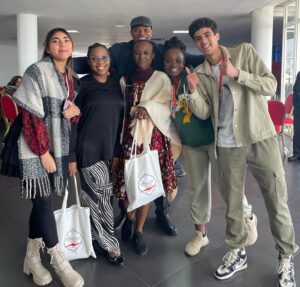
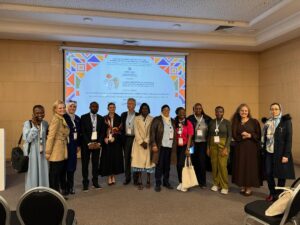
As a platform for collaboration, the conference agenda included various keynote speeches, workshops, panel discussions, abstract and project presentations to share knowledge, learn from activities and showcase achievements across different sectors working on sexual and reproductive health (SRH) issues in Africa. And some of the challenges highlighted through these different sessions included:
– Only 15% of the sustainable development goals (SDGs) are currently on track due to global crises and the pandemic causing reverse progression and stagnancy in different areas of development. And this cumulatively means that about 340 million women would still remain in extreme poverty.
There are visible gaps between policy making, commitment, and real implementation. Therefore, we must stand together with one strong voice and share best practices to achieve the sustainable development goals.
– Significant prevalence of child and underage marriage, as up to 14% of girls have married below the age of 18 in Africa.
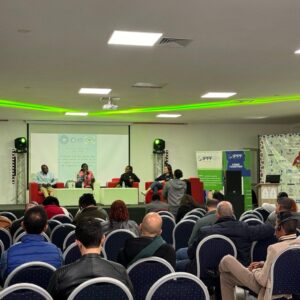
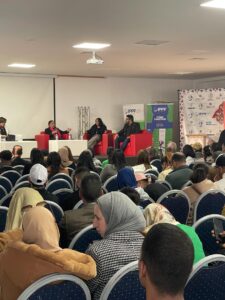
– Many women die as a result of pregnancy, and abortion is still a leading cause of maternal mortality. Especially in Subsahara Africa, where we have the highest number of unwanted pregnancy and unsafe abortion, as well as a record of 8 million abortions annually across the entire African continent.
Despite the Maputo protocol – article 14 on the progressive legalization of abortion, it’s still criminalised in many African countries, as abortion can only be done without restrictions in only 4 out of 52 African countries.
However, in the same vein, recommendations made concerning these identified issues by the speakers, panellists, presenters and participants were:
- Using the spirit of Ubuntu to encourage strong partnerships across Africa because our issues cannot be solved by one singular institution or agency or body.
- Ensuring intergenerational dialogue and including young people in decision making, because the future is young and youths themselves are the best to provide solutions for issues affecting them.
- Engaging traditional, religious and community leaders in our interventions, because they are powerful and influential.
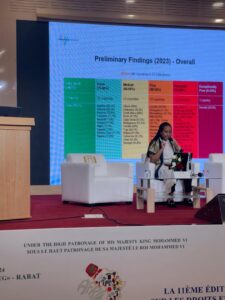
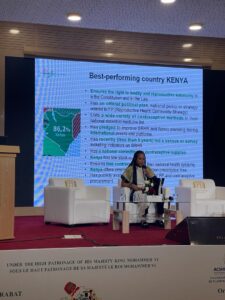
- Focusing on women and girls right to information and commodities, especially concerning family planning. Because it aids the health of women and girls and enhances development.
- Highlighting the importance of Gender equality, the first male ambassador for gender equality in the Netherlands and the world – His Excellency Mr Peter Hof, reiterated that the role of men and their participation to ensure gender equality cannot be overemphasised.
Although our realities across the continent are different, but there is no stability without development and no development without stability. Hence, we must continue advocacy till we win on all fronts against restrictive laws and harmful practices against women and girls.
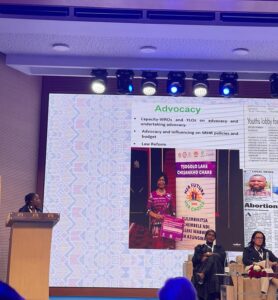
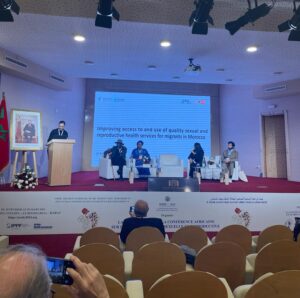
Furthermore, during the youth declarations read by the Preconference Chair – Sara Lamjamri, the youths call to all African government to invest and ensure inclusive SRHR for young people in their countries, as well as towards their mental health, in ending child/under-age marriage, encouraging pro-environmental practices, leveraging the media as a tool for advocating positive change and work towards achieving the agenda 2030 of the sustainable development goals.
At this pivotal event, different local, national and internation organisations and agencies were duly represented. Some of which included the United Nations Population Fund (UNFPA), World Health Organization (WHO), United Nations Educational, Scientific and Cultural Organization (UNESCO), International Planned Parenthood Federation (IPPF), International Organization for Migration (IOM), Joint United Nations Programme on HIV/AIDS (UNAIDS), Oxford Committee for Famine Relief (OXFAM), United Nations Development Programme (UNDP), ODAS Center, Medecins du Monde-France (MDM-F), Medical Women’s Association of Nigeria (MWAN), World Association for Sexual Health (WAS), Sexual and Reproductive Health Matters (SRHM) Journal, as well as Departments and Ministries of Health of countries across the continent, among others. Also, the First Ladies of the Republic of Central African Republic and the Republic of Zambia graced the conference including other diplomatic and political dignitaries from around the world.
Although we are lacking behind, but we are making progress and surely, more can be done. So, Africa! let’s do it together ~ Ms Nana O. B. Addo, Ghanian Lawyer and Human Right Advocate at the 11th ACSHR.
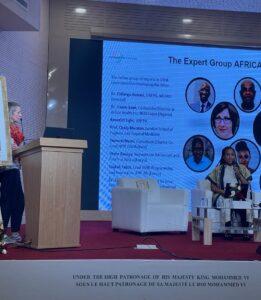
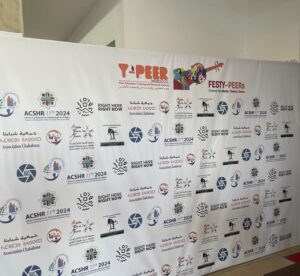
About Author:
Dr. Mary Oluwakemisola Agoyi is a Public Health Expert, Research Analyst, Healthcare Skills Trainer, SRHR advocate and also the Program Manager of Safer Hands Health Initiative. She is passionate about Maternal & Child Health and actively working in the Adolescent/Youth Friendly service provision space, Community, Primary and Healthcare development sector. With a background in journalism and over 7 years’ experience in writing, content creation, reporting, editing, managing and contributing on various national and international medical/health-related publication committees, platforms and organisations; She believe that proper (medical) documentation and communication across all levels and sectors is key for sustainable development in the health sector and beyond. Her email is kemisolaagoyi@gmail.com.

